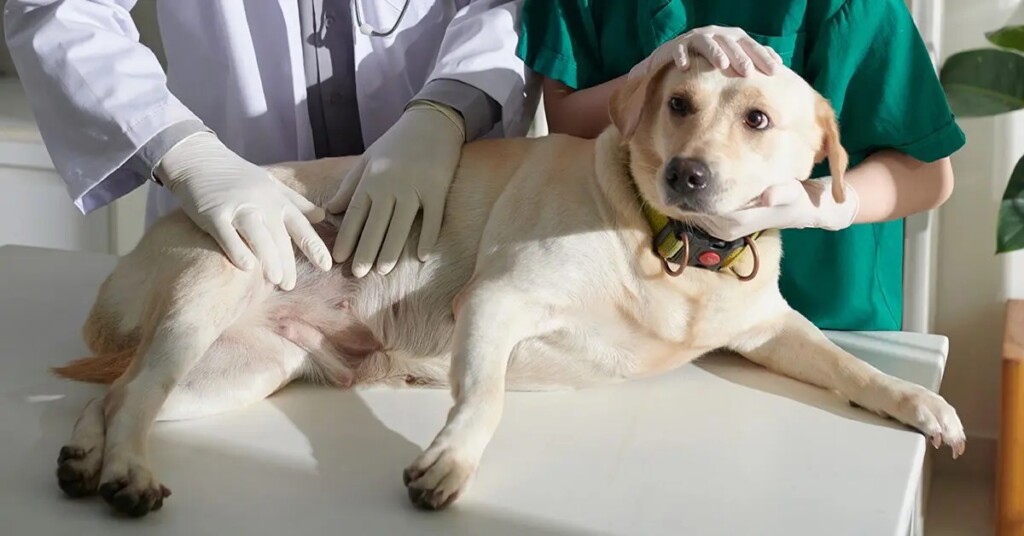Bloating is a condition that can affect dogs, causing discomfort and potential health risks. Understanding the causes, recognizing the symptoms, and taking appropriate action is crucial for their well-being. In this article, we will explore the common causes of bloating in dogs, signs to look out for, and practical remedies to help your furry friend feel better. Let’s dive in!

Section 1: Understanding Bloating in Dogs Bloating, also known as gastric dilatation-volvulus (GDV), occurs when a dog’s stomach becomes filled with gas and may twist. This condition can be life-threatening and requires immediate attention. Common causes of bloating include swallowing air, dietary issues, or a genetic predisposition in certain breeds.
Section 2: Recognizing Bloating in Dogs It’s essential to recognize the signs of bloating in dogs to take prompt action. Some common symptoms include a visibly distended abdomen, restlessness, unproductive retching or attempts to vomit, excessive drooling, pale gums, and difficulty breathing. If you suspect your dog is bloating, it’s crucial to seek veterinary assistance immediately.
Section 3: Taking Immediate Action In emergency situations, time is of the essence. If your dog is showing signs of severe bloating, contact your veterinarian or the nearest emergency veterinary clinic right away. While on the way, try to keep your dog calm and minimize their physical activity.
For milder cases of bloating, there are a few at-home remedies that may provide temporary relief. Taking your dog for a slow, controlled walk can help relieve gas and promote movement in their digestive system. Gentle massaging of the abdomen in a clockwise motion may also help alleviate discomfort.
Section 4: Long-Term Prevention and Management Preventing bloating is crucial to ensure your dog’s well-being. Some strategies include feeding smaller, more frequent meals, avoiding rapid eating, using specialized slow-feeders or puzzle toys, and providing a balanced diet appropriate for your dog’s breed and size. Discussing dietary adjustments with your veterinarian is essential for long-term management.
Certain risk factors, such as eating too quickly, vigorous exercise after meals, or stressful situations, should be minimized or avoided. Regular veterinary check-ups are vital for monitoring your dog’s health and discussing any concerns related to bloating or digestive issues.
Bloating in dogs is a serious condition that requires attention and swift action. By understanding the causes, recognizing the symptoms, and taking preventive measures, you can help minimize the risk of bloating in your beloved pet. Remember, always consult with a veterinarian for personalized advice and guidance tailored to your dog’s specific needs. With your care and vigilance, you can promote their well-being and ensure a happy, healthy life for your furry friend.
As an Amazon Associate we earn from qualifying purchases through some links in our articles.




